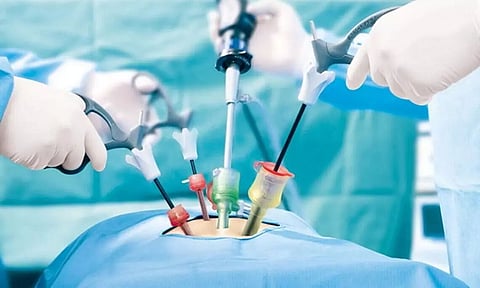
- Home
- Live Blog
- Breaking News
- Top Headlines
- Cities
- NE News
- Sentinel Media
- Sports
- Education
- Jobs

SAN FRANCISCO: An artificial intelligence tool has been developed to help make real-time diagnoses during surgery, improving the quality of images to increase the accuracy of rapid diagnostics, a new study has shown.
According to the study published in Nature Biomedical Engineering, the method leverages artificial intelligence to translate between frozen sections and the gold-standard approach. "We are using the power of artificial intelligence to address an age-old problem at the intersection of surgery and pathology," said the corresponding author of the study Faisal Mahmood, PhD, of the Division of Computational Pathology at US-based Brigham and Women's Hospital.
"Making a rapid diagnosis from frozen tissue samples is challenging and requires specialised training, but this kind of diagnosis is a critical step in caring for patients during surgery," he added.
To make final diagnoses, pathologists use formalin-fixed and paraffin-embedded (FFPE) tissue samples -- this method preserves tissue in a way that produces high-quality images but is labour-intensive and can take several days, according to the study. Mahmood and co-authors developed a deep-learning model that can be used to translate between frozen sections and more commonly used FFPE tissue. As a result of their research, the team demonstrated that the method can subtype different types of cancer, including gliomas and non-small-cell lung tumours. (IANS)
Also Read: Processed food key to rising obesity: Study
Also Watch: